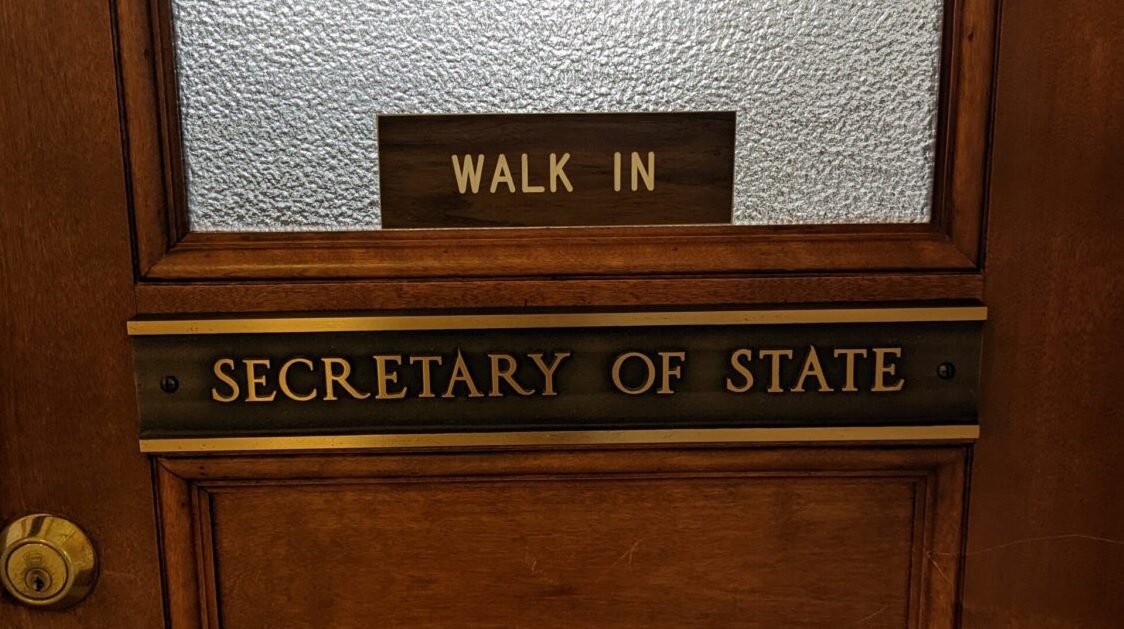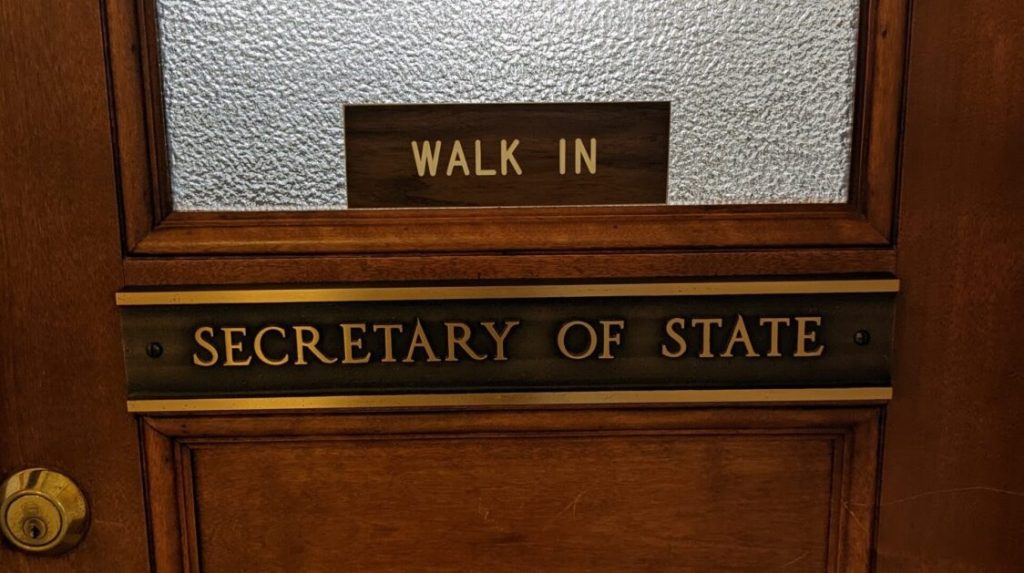PIERRE, S.D. – The perceived daylight between the terms “manual count” and “hand count” proved contentious during discussions of post-election audit rules that inched closer to implementation on Wednesday in Pierre.
The rules represent South Dakota’s first foray into post-election audits, which are routinely done in most states. Creating such an audit process was a key campaign issue for Secretary of State Monae Johnson, elected last November after she narrowly bumped incumbent Steve Barnett from the Republican ticket.
The state Legislature endorsed the audits last winter, setting the stage for a series of rule-making meetings conducted by the state Board of Elections.
Wednesday’s meeting represented one of the last steps toward the finalization of those rules, which will guide the county auditors who will now be expected to form and manage audit boards to spot-check election results.
The rules approved Wednesday will need a hearing before the Legislature’s Rules Review Committee in November before they take effect.
Rachel Soulek, the secretary of state’s election coordinator, told board members that the post-election audit rules were drafted using the state’s existing rules for recounts.
“This is something the auditors and election officials are used to seeing,” Soulek said.
The post-election audits, however, are not meant to be stand-ins for full recounts. The law passed by legislators notes that the results of the audit could lead to a recount if discrepancies greater than the margin of victory are discovered between the audited ballots and the tabulation machine results. At that point, auditors would notify the candidates involved, who’d be able to request recounts.
Auditors: Don’t say ‘hand count’
The recount issue animated some of the concerns presented by county auditors prior to Wednesday’s meeting.
Auditors wanted “hand count” references replaced by “manual count.”
Board members struggled to see the difference, but Harding County Auditor Kathy Glines testified that invoking the term “hand count” could tie post-election audit boards to a set of rules about hand counts that are used to guide recounts.
Those rules require reviewers to look for voter intent on questionable ballots, effectively turning post-election audits into far more involved and contentious recounts.
“The audit is to make sure that the tabulators are reading the ballots correctly,” Glines said. “It’s not a recount.”
Minnehaha County Auditor Leah Anderson, however, who did not sign on to the auditors’ list of suggested changes, said she’s concerned that the words “manual count” could be interpreted to mean “counted by another machine.”
“There are auditors that may think that they could do a transitive audit, which we talked about in the summer study, where you use a different tabulator,” Anderson said.
Soulek told the board that the intent of lawmakers, who used the words “manually counted” in the audit law, was to have ballots hand-counted during a post-election audit. That’s why the proposed rules referenced hand counting, she said, “just to make that clear.”
A version of the auditors’ requested change in verbiage found its way into the final set of rules, but an attempt to draw a clear line between post-election audits and recounts with a focus on voter intent failed.
The board voted to use terms like “manually counted” in place of “hand counted” and its various iterations across the rule set. The initial vote to do so in one section of the rules was 4-3, with Johnson, Rapid City’s Mike Buckingham and Gettysburg’s John Lake opposed.
Shortly thereafter, board member Scott McGregor attempted to add a definition of manual counting with language to make clear that the recount rules wouldn’t apply to hand counts performed by post-election auditors.
That motion failed 4-2.
Buckingham moved to define manual counting as “counting other than by electronic device,” effectively making the words “manual” and “hand” interchangeable. Johnson supported that change, which passed.
Controversy trails post-election audit talks
Hand counting has been the subject of controversy in South Dakota. Electoral activists, some of whom testified throughout Wednesday’s nearly daylong hearing, have alleged that tabulation machines are unreliable and compromise election integrity.
Commissioners in Tripp County ordered that county’s auditor to hand count ballots in last fall’s general election, a move Auditor Barb Desersa decried as stressful, unnecessary and a sign of a troubling loss of trust in the electoral process.
Shortly after the election, Desersa told South Dakota Searchlight that a county tabulation machine she’d been barred from using caught human error in the county’s vote tallies.
The post-election audit rules have gone through several rounds of public comments. Similar to previous meetings on the matter, election activists lodged multiple complaints about the rules on Wednesday. Elkton’s Rick Weible, for example, argued that post-election audits ought to involve divining voter intent.
The Legislature’s Rules Review Committee is expected to hold a hearing on the post-audit rules on Nov. 7.












